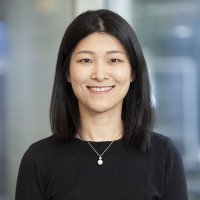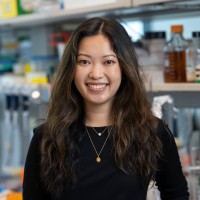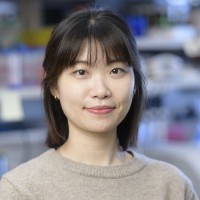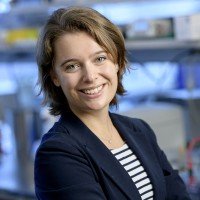The Heeseon An Lab
Research

The research in An lab centers around protein degradation processes in health and disease. We investigate protein degradation processes using chemical biology tools and unbiased proteomic approaches to discover previously unknown degradational pathways and molecular mechanisms. Specific research areas include 1) developing innovative chemical, biological, and proteomic tools to help advance protein degradation research, 2) identifying protein degradation pathways altered explicitly in disease and employing this information to develop small molecule probes with therapeutic potential, and 3) elucidating the fundamental role of ribosomal proteins and ribosome homeostasis using protein-degradation and chemical proteomics tools. Multidisciplinary and quantitative approaches are central to our research in addressing the questions mentioned above.

Publications Highlights
Pham BQ, Yi SA, Ordureau A, An H* (2025) mTORC1 regulates the pyrimidine salvage pathway by controlling UCK2 turnover via the CTLH-WDR26 E3 ligase. Cell Reports , 44, 115179.
Yi SA, Sepic S, Schulman BA, Ordureau A, An H* (2024) mTORC1-CTLH E3 ligase regulates the degradation of HMG-CoA synthase 1 through the Pro/N-degron pathway. Molecular Cell , 84, 1-19.
Jordan VN, Ordureau A, An H* (2023) Identifying E3 ligase substrates with quantitative degradation proteomics. Chembiochem . 24(16):e202300108.
An H#, Ordureau A#, Koerner M, Paulo JA, Harper JW (2020) Systematic quantitative analysis of ribosome inventory during nutrient stress. Nature , 583, 303-309. # equal contribution
An H, Ordureau A, Paulo JA, Shoemaker CJ, Denic V, Harper JW (2019) TEX264 Is an Endoplasmic Reticulum-Resident ATG8-Interacting Protein Critical for ER Remodeling during Nutrient Stress. Molecular Cell , 74, 891-908.
People

Heeseon An, PhD
- Heeseon An’s lab studies protein degradation in health and disease using chemical, biological, and proteomics tools.
- BS and MS, Chemistry, Seoul National University
- PhD, Chemistry, Northwestern University
- Postdoc, Cell Biology, Harvard Medical School
- [email protected]
- Email Address
- 646-888-3417 (ZRC-2003)
- Office Phone
- Download CV
- PDF File
Members















Achievements
Open Positions
To learn more about available postdoctoral opportunities, please visit our Career Center
To learn more about compensation and benefits for postdoctoral researchers at MSK, please visit Resources for Postdocs
Get in Touch
-
Lab Head Email
-
Office Phone
Disclosures
Members of the MSK Community often work with pharmaceutical, device, biotechnology, and life sciences companies, and other organizations outside of MSK, to find safe and effective cancer treatments, to improve patient care, and to educate the health care community. These activities outside of MSK further our mission, provide productive collaborations, and promote the practical application of scientific discoveries.
MSK requires doctors, faculty members, and leaders to report (“disclose”) the relationships and financial interests they have with external entities. As a commitment to transparency with our community, we make that information available to the public. Not all disclosed interests and relationships present conflicts of interest. MSK reviews all disclosed interests and relationships to assess whether a conflict of interest exists and whether formal COI management is needed.
Heeseon An discloses the following relationships and financial interests:
No disclosures meeting criteria for time period
The information published here is a complement to other publicly reported data and is for a specific annual disclosure period. There may be differences between information on this and other public sites as a result of different reporting periods and/or the various ways relationships and financial interests are categorized by organizations that publish such data.
This page and data include information for a specific MSK annual disclosure period (January 1, 2024 through disclosure submission in spring 2025). This data reflects interests that may or may not still exist. This data is updated annually.
Learn more about MSK’s COI policies here. For questions regarding MSK’s COI-related policies and procedures, email MSK’s Compliance Office at [email protected].
